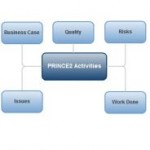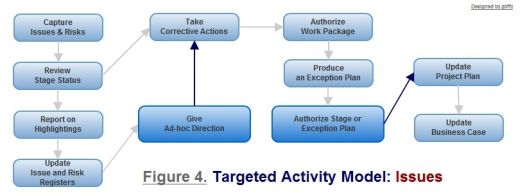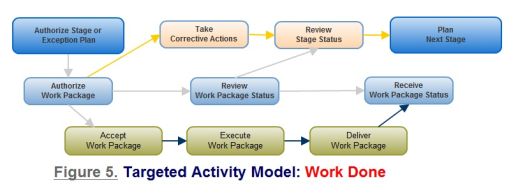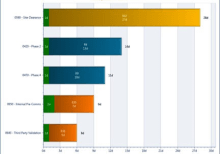PRINCE2 Activities: Five Models of Managing Targeted Activities
 The PRINCE2 methodology generates a range of activities to manage project constraints such as issues, risks, quality, business requirements, and so on. In order to plan and deliver a PRINCE2-driven project, the project manager needs to understand what activities to run and how they supposed to be managed.
The PRINCE2 methodology generates a range of activities to manage project constraints such as issues, risks, quality, business requirements, and so on. In order to plan and deliver a PRINCE2-driven project, the project manager needs to understand what activities to run and how they supposed to be managed.
In this article we present five models of PRINCE2 activities. The models describe Business Case, Quality, Risks, Issues, and Work Done. The information in this article will help you better understand PRINCE2 activities.
Business Case
In terms of the PRINCE2 methodology, the business case serves as the primary tool for identifying whether a given project is viable and worth of further initiation and development. The business case is a formal document that investigates the business problem to be addressed by the project, examines expected tangible and intangible benefits of the project, provides cost estimates, and describes potential impacts of the project to the stakeholders (people and organizations interested in or affected by the project).
Managing the business case is one of the PRINCE2 targeted activities. The activity is indented for keeping a project current and viable in order to ensure that the project product will be produced according to the business requirements and stakeholder expectations.
Please look at the Figure 1 to view a diagram describing the components of the Business Case Targeted Activity Model.

Quality
In terms of the PRINCE2 method, quality is the extent to which a product is supposed to reach by satisfying stated needs. In other words, the product is of required quality when it meets its stated functions and features.
Product quality is always based on the customers’ expectations. When the project manager has those expectations he/she can develop acceptance criteria that determine whether the product will be accepted or rejected by the customers upon successful completion of the project. Then the manager needs to develop a quality management plan that defines the quality techniques and standards to be applied to the project management process, and the various responsibilities for achieving the required quality levels.
Managing product quality is one of the PRINCE2 targeted activities. Below in the Figure 2 you can see the representation of the Quality Targeted Activity Model describing the quality management process of a PRINCE2-driven project.
Risks
A project risk is a probability or threat of a loss, damage or other negative occurrence that is caused by external or internal factors and has a direct impact to the project. The PRINCE2 method suggests creating and using the Risk Log that is a document to record uncertainties and threats and describe identified risks.
In general, the methodology regards risk management as a process of the four steps such as Risk identification, Risk Assessment, Risk Mitigation, and Contingency Planning. In order to deliver a successful PRINCE2 project, the project manager needs to develop a risk management strategy that elaborates the steps and determines how to deal with threats and uncertainties in an effective manner
In the Figure 3 you can Risk Targeted Activity Model representing a flow of typical procedures of PRINCE2 risk management.

Issues
A project issue is a satiation which could have either a positive or negative effect to the project. For example: some component (legal requirements, competitive marketplace) of the project environment changes so the project need to be reviewed and modified in order to address the change and keep the project current and sufficient.
The PRINCE2 methodology recommends using a consistent approach that involves firstly recording issues in the Issue Log and then identifying issue types (e.g. a risk, a general issue, a change request). An assessment of the identified issues is then made to determine what actions to perform to deal with the issues.
Below in the Figure 4 you can see the Issue Targeted Activity Model that demonstrates the key steps of managing project issues, according to PRINCE2.

Work Done
The methodology offers a unique approach to monitoring project work and determining if it is done. Project work is regarded as a set of information packages about one or more required products being produced by the project. The challenge here is to define when the products are produced and the work package is done.
In the Figure 5 you can view the typical flow of PRINCE2 activities described by the Work Done Targeted Activity Model















